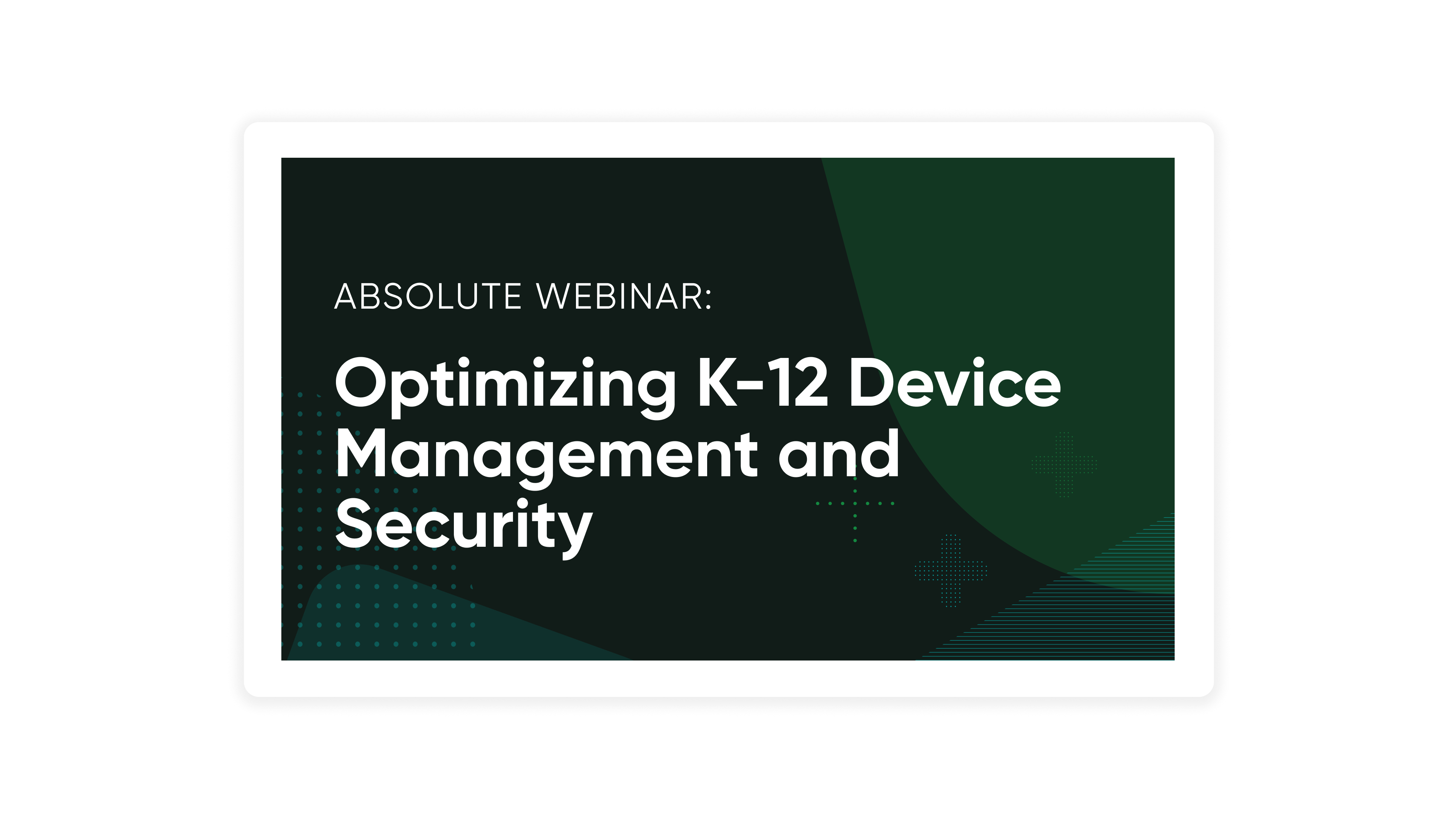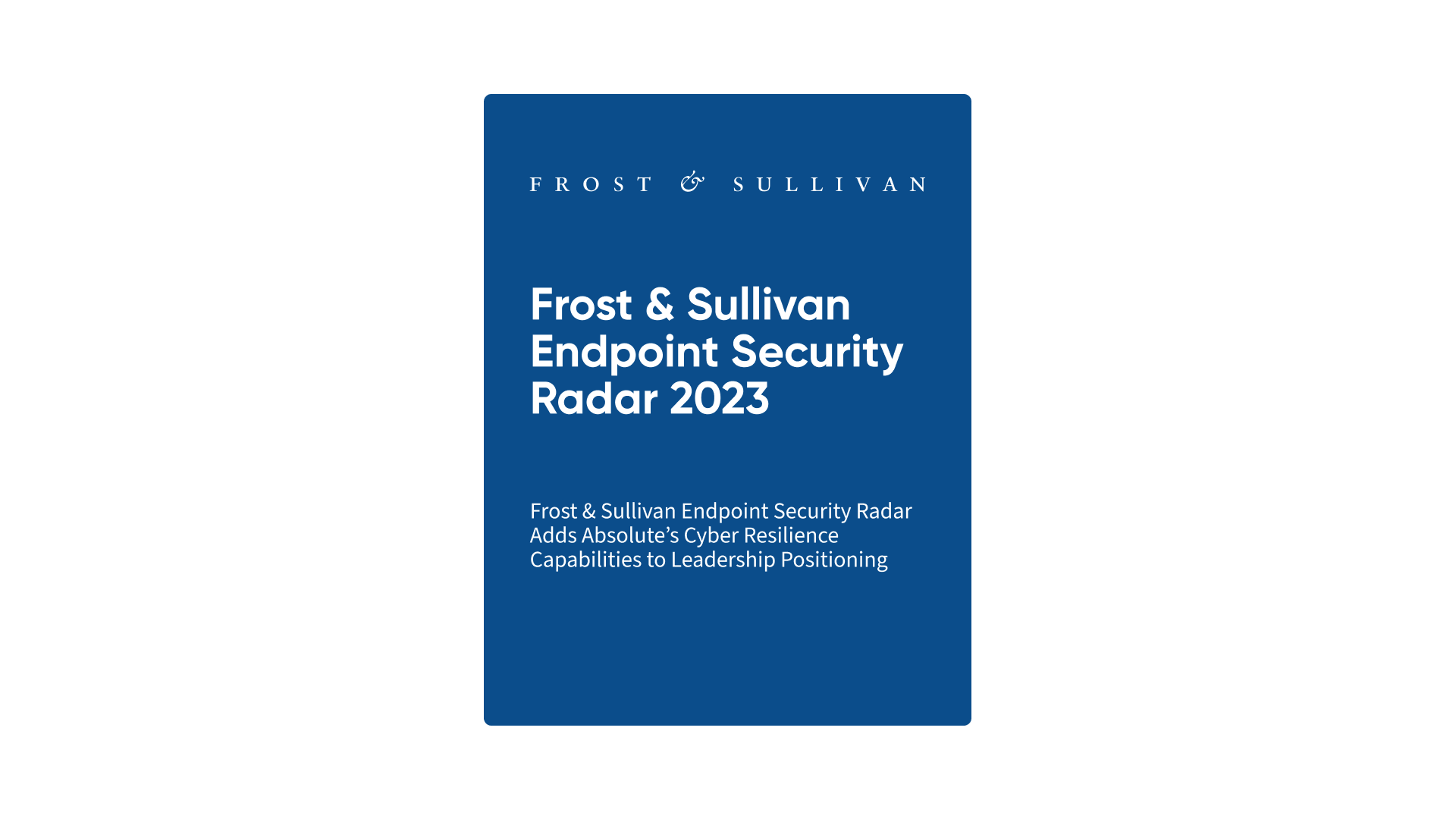Absolute Software is now Absolute Security
Delivering Cyber Resilience across mobile and hybrid workforces everywhere
Read the blog post to learn more
Absolute for Security & Compliance
Absolute for IT Management
Absolute for Business Enablement
Endpoint-to-Network Access Coverage
Deep and wide endpoint-to-network visibility, control, and persistence to defend and protect your collaboration, infrastructure, and security technology from the firmware up through network access — despite computing and network complexity.
Automated Security Compliance
- Strengthen IT and compliance posture by fortifying your technology and security stack, ensuring your security controls are working.
Operational & Experiential Continuity
- Enable and insulate your mission-critical applications, neutralize digital disruption and transform mobile user experiences, so your teams confidently get work done wherever they are.
Secure Endpoint
Reliable, resilient endpoints for your modern workforce
Serves as your source of truth for device and application health
Provides you a lifeline to protect at-risk devices and data
Delivers application self-healing and confident risk response
Secure Access
Reliable, resilient access solutions for your modern workforce
Built from ground up for mobility and the modern edge
Delivers the best user experience for the software-defined perimeter
Boosts diagnostics and remediation for digital experience monitoring
Already embedded in your devices
Absolute Persistence® - unique, patented technology embedded in the firmware of 600+ million devices that provides a secure connection between the Absolute Platform and the endpoint.
Unbreakable, and always-on.

Learn about our Platform
Empowering businesses everywhere
View our case studies"Absolute is like an insurance policy for us that offers protection that I haven’t seen from any other product out there."
Mike Fallat
IT Procurement
Ogletree Deakins
"We knew Absolute Secure Access could give us the visibility we needed to improve the remote work experience and provide better support."
Charlie Laing
Head of IT
Harbottle & Lewis
"Absolute Web Usage has provided us with much needed insight into how our district utilizes both paid and free applications within our system."
Eric Ramos
CTO
Duarte USD

Every endpoint should be a safe endpoint.
And every network should be a secure network.
That's why we work with independent software vendors, managed service providers, device manufacturers, and resellers to extend the benefits of Absolute to their customers.
Learn About Absolute Partners
Learn About Absolute for ISVs
Establish cyber resilience for your anywhere workforce
A Leader in G2 Awards
The only provider of self-healing, intelligent security solutions. Recognized by G2 as an industry leader.
Read our G2 Reviews
Featured Resources
Like what you're hearing?
We’d love to show you how Absolute can secure and empower your organization.
Looking for more information? Join a product overview webinar
Not ready for a demo? Have some questions?


 Always-on endpoint visibility
Always-on endpoint visibility
 Always-on control
Always-on control
 Endpoint resilience
Endpoint resilience
 Optimized, secure tunnel
Optimized, secure tunnel
 Resilient Zero Trust Network Access
Resilient Zero Trust Network Access  Insights for your network
Insights for your network






